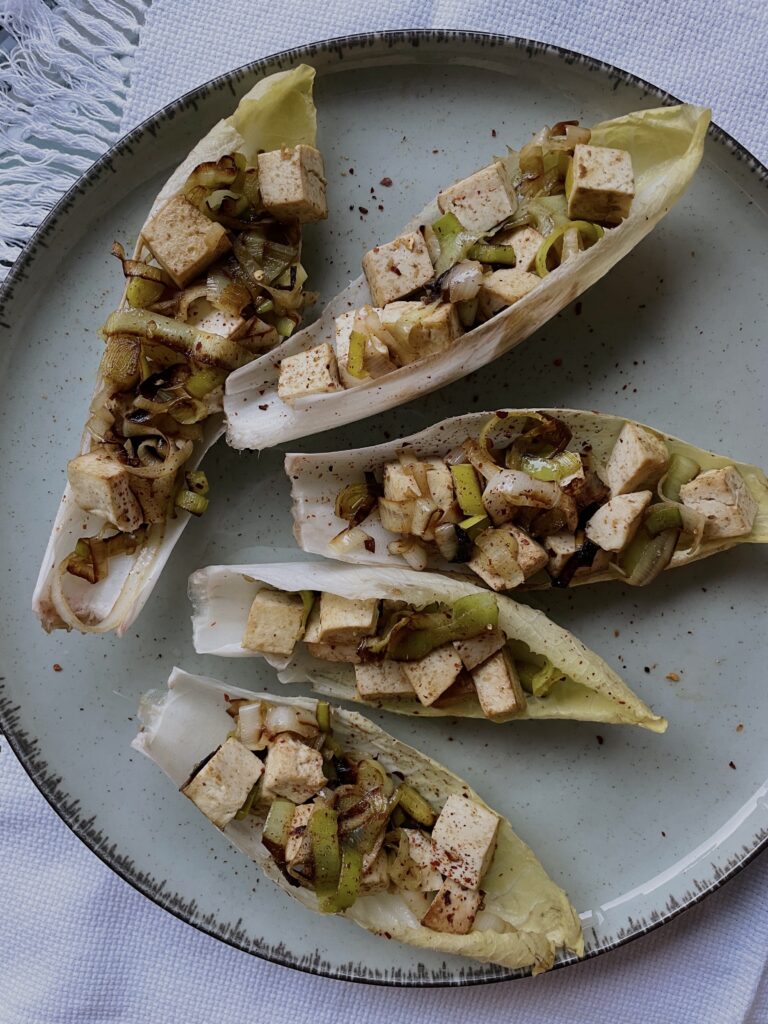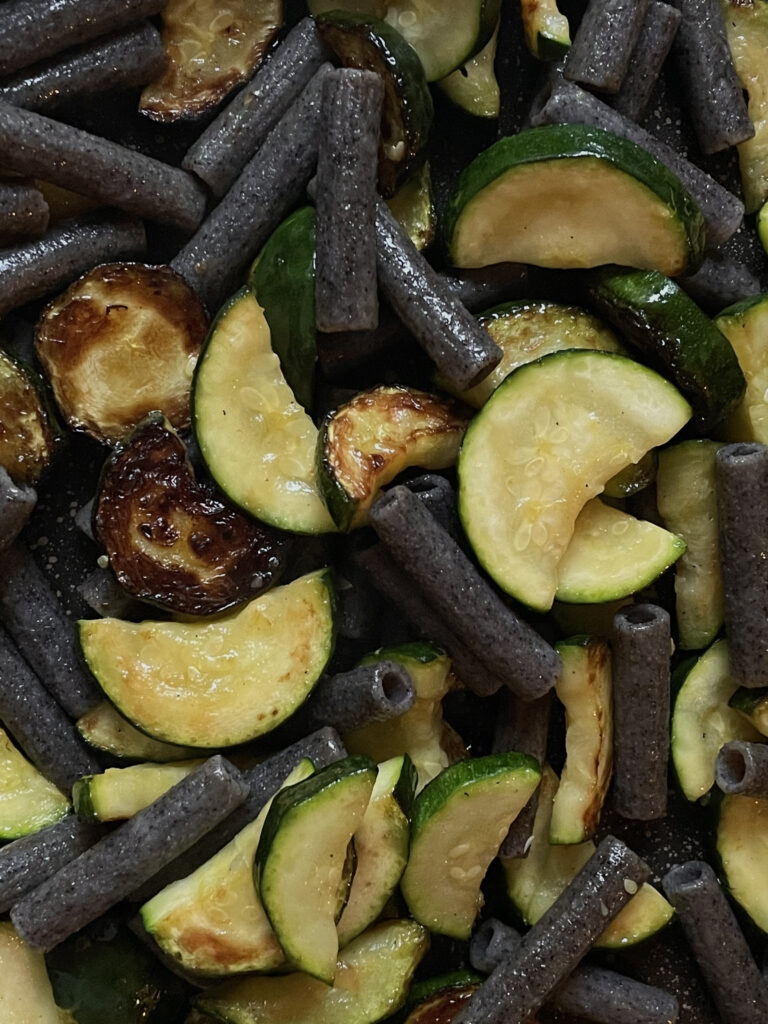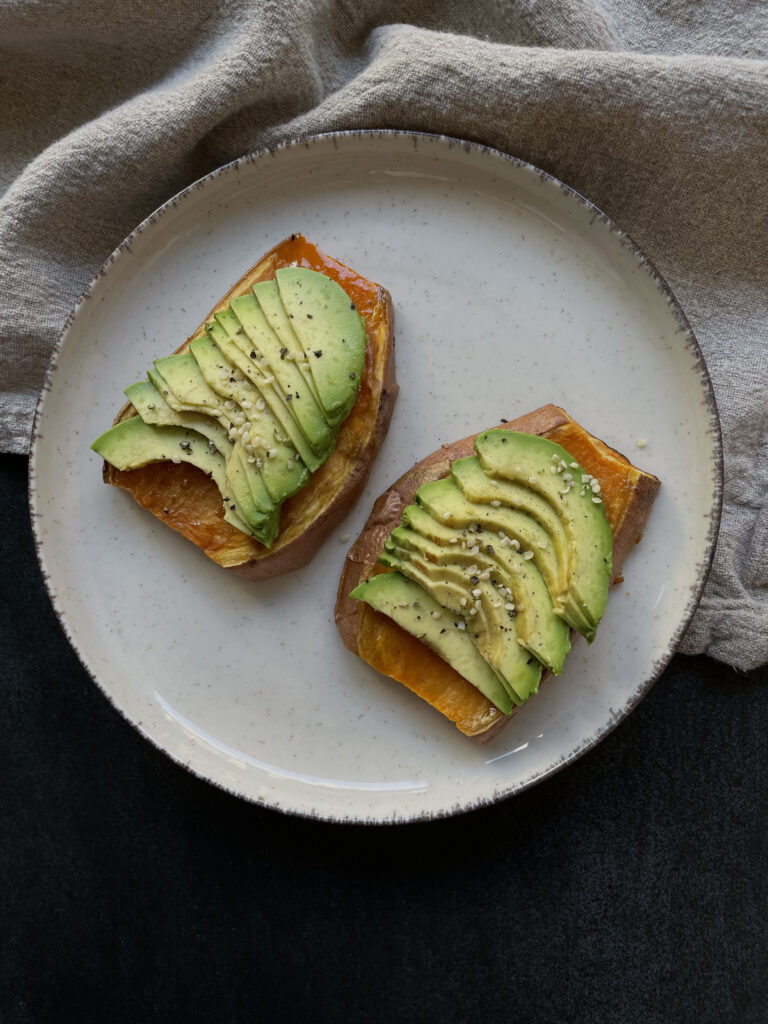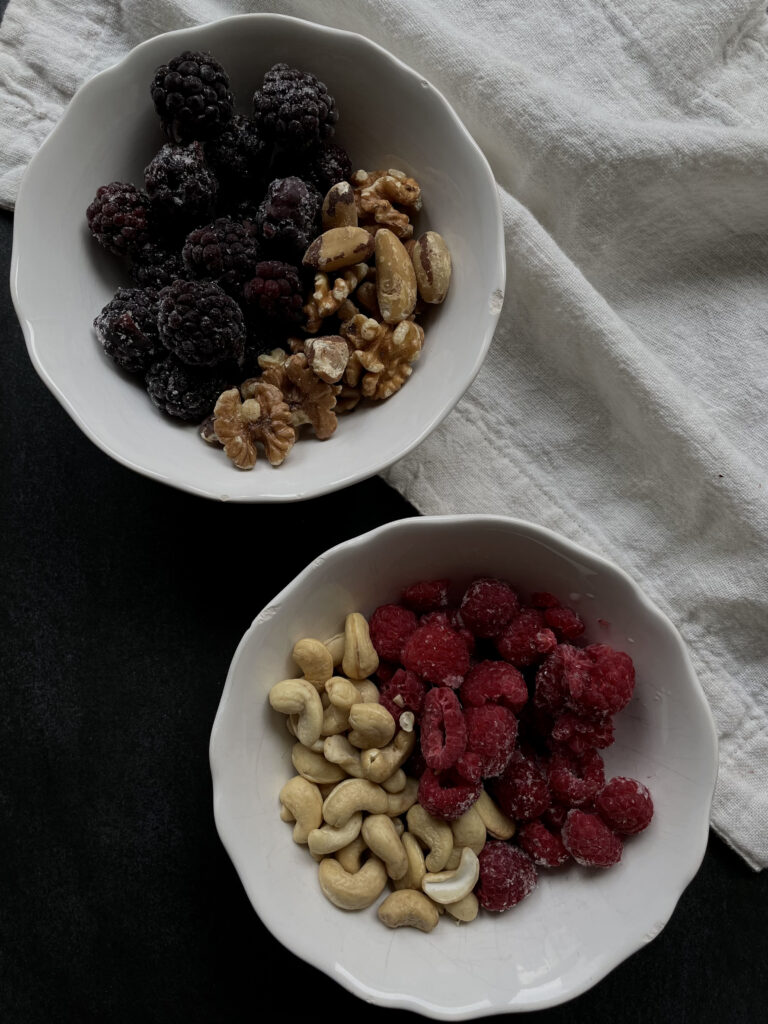I often get asked if I buy everything organic. The answer is no! But let me tell you why.
I surely pay attention to the quality of the products I buy, especially when it comes to animal proteins and sweeteners. But I do not buy everything organic, it would just not be budget-friendly. And when it comes to fruits and vegetables, buying organic is not always necessary.
What are the benefits of eating organic?
I’ll start by saying that there is little to no difference in the macro nutritional value of conventional foods and organic food. Therefore, the amount of proteins, carbohydrates, fat and dietary fiber stays pretty much the same regardless of organic or conventional. However, organic foods contain undoubtedly more antioxidants than conventional foods, organic dairy products contain more omega-3 fatty acids, and organic meats have a better fatty acid profile.
But the main difference between organic and conventional foods is that they go through different food regulations. The result is that organic foods contain way less toxic metabolites, including less heavy metals and less synthetic fertilizer and pesticide residues. Toxic metabolites can intoxicate the body and alter its natural mechanisms, including the immune response and metabolism.
HERE IS HOW TO BE YOUR HEALTHIEST SELF IN A BUDGET-FRIENDLY MANNER
Let’s start with fruit and veggies
Every year, the non-profit organization Environmental Working Group (EWG) comes out with two lists: the Dirty Dozen and The Clean 15. The first one has listed the 12 fruits/veggies with the most pesticides; the second one has the fifteen fruits/veggies with the least pesticides.
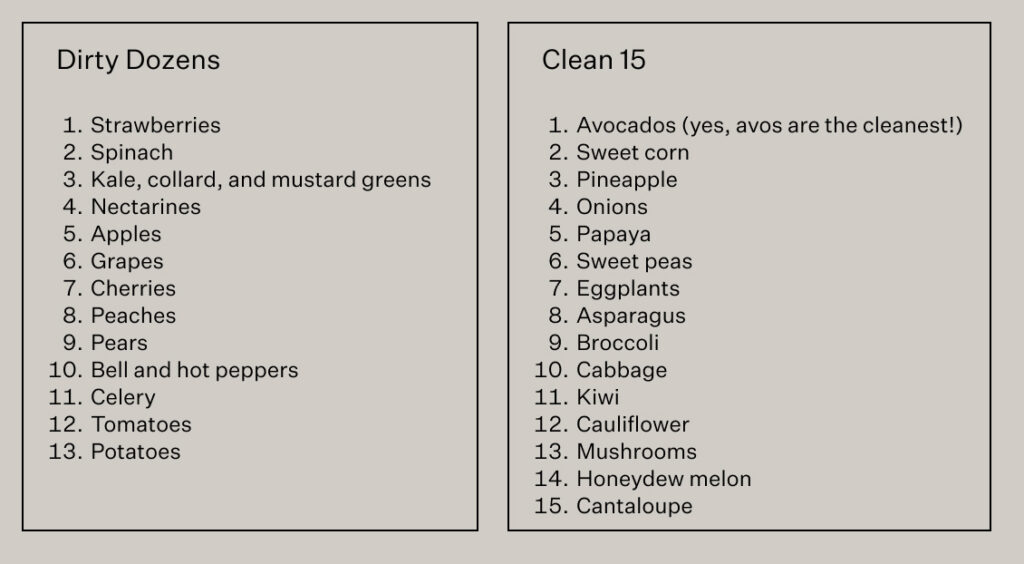
In simple words, all the fruits and veggies in the Dirty Dozen list should always be bought in their organic version. On the contrary, all the fruits and veggies in the clean 15, can be purchased in their conventional version and I highly encourage doing so.
Now, if for any reason you cannot buy the organic version of the Dirty Dozen, I recommend you remove at least the skin before consumption (for example for potatoes, apples, and peaches) and also you rinse rinse rinse. Rinsing well under running water works okey, but you can also soak fruits and veggies in water with apple cider vinegar (1 part apple cider vinegar to 10 parts of water). Vinegar helps remove pesticides and bacteria better than just water. Soak veggies or fruits for about 10 minutes, scrub and rinse well.
Then we get to proteins & sweeteners
My main recommendation is to get seafood, meats, milk, and dairy products from trusted sources, such as farmers’ markets or trusted butcheries and fish markets. If you find yourself buying your protein from a conventional supermarket, I highly suggest you buy the organic version.
And always get soy and soy-based products in the organic form!
I also recommend buying high-quality sweeteners or going for the organic version. Again, it’s not about a caloric difference (the sugar content stays the same), but there is a huge nutritional difference between buying a jar of conventional honey/agave and a jar of raw organic honey/agave, for example. The organic version contains way more antioxidants and way fewer chemicals, it’s thus healthier for the body and healthier for the environment.
